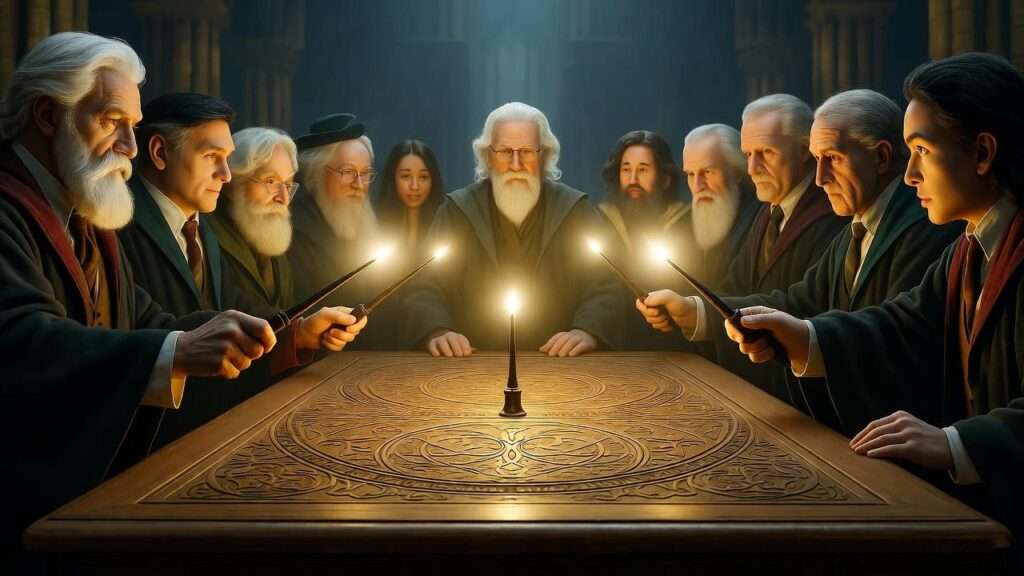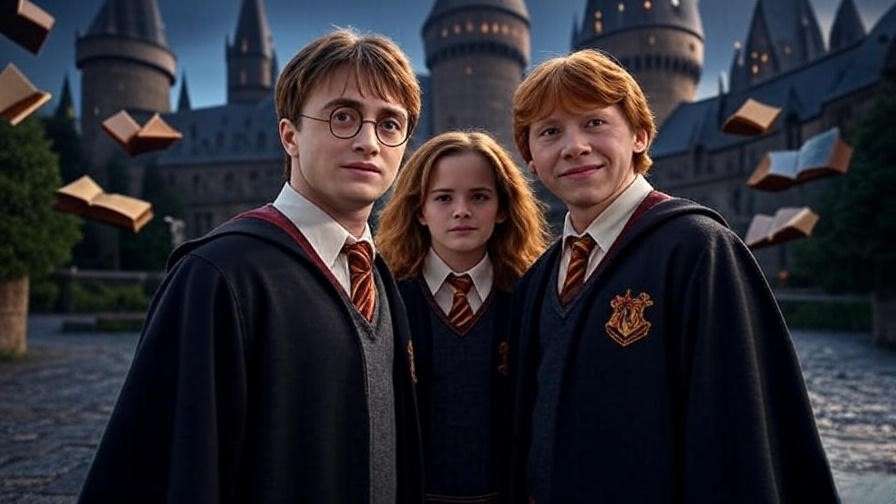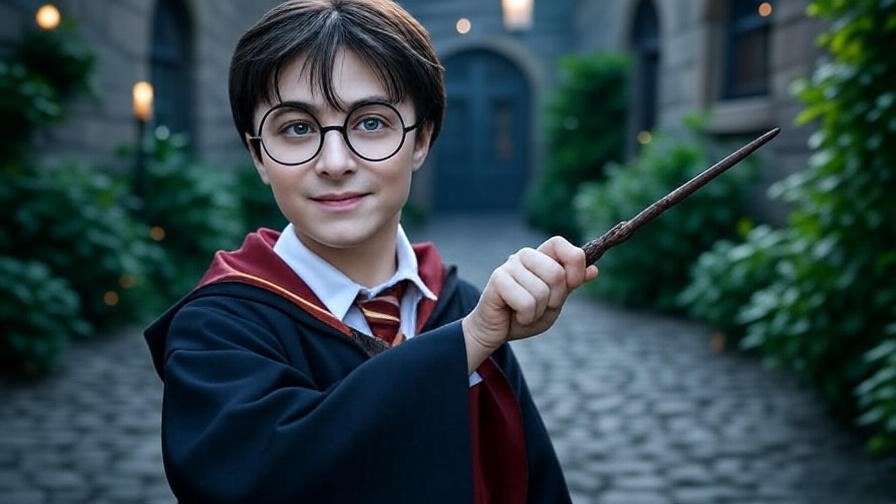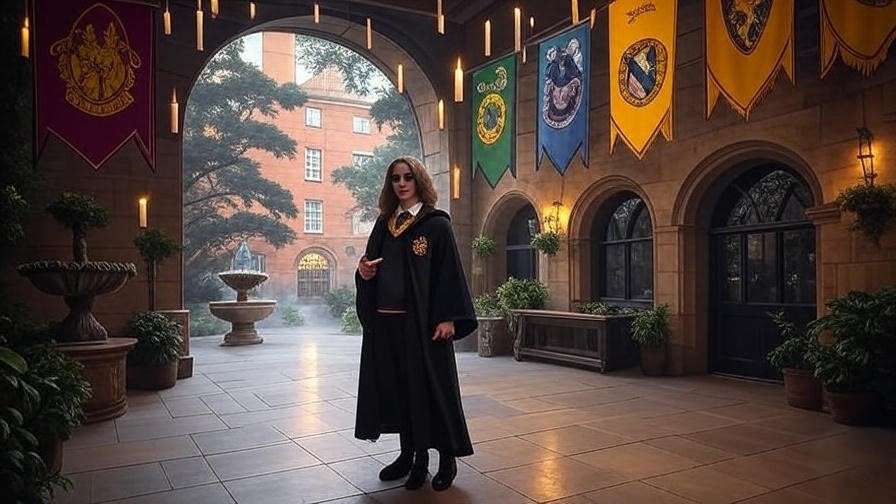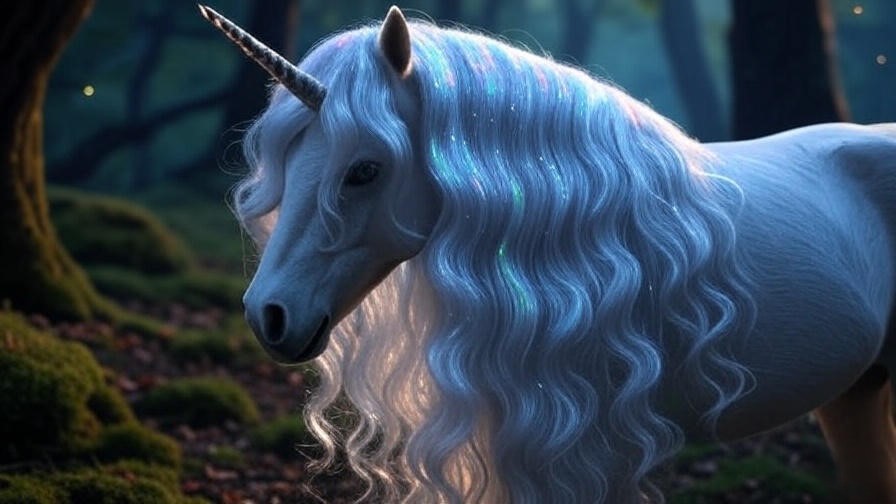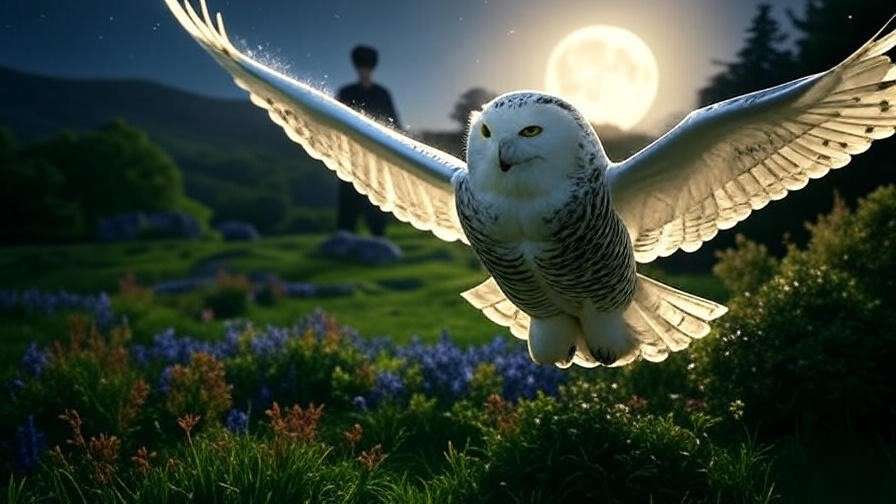Imagine a clandestine summit where wizards from every corner of the globe gather in a hidden chamber, their wands aglow, debating the fate of the magical world. This is the realm of the International Confederation of Wizards (ICW), the enigmatic backbone of global wizarding governance in J.K. Rowling’s Harry Potter universe. For fans craving a deeper understanding of the wizarding world’s political and cultural landscape, the ICW is a treasure trove of lore, intrigue, and untold stories. In this comprehensive guide, we’ll unravel the ICW’s history, structure, pivotal moments, and hidden secrets, drawing from J.K. Rowling’s books, the Wizarding World archives, and expert fan analyses. Whether you’re a lifelong Potterhead or a curious newcomer, this article will illuminate the ICW’s vital role and why it matters to the magical community.
What Is the International Confederation of Wizards?
Definition and Purpose
The International Confederation of Wizards is the wizarding world’s equivalent of the United Nations, a global body tasked with uniting magical communities and upholding the laws that govern them. First mentioned in Harry Potter and the Goblet of Fire, the ICW ensures harmony among wizards, enforces the International Statute of Secrecy, and sets standards for magical practices worldwide. Its primary mission is to maintain the delicate balance between the magical and Muggle worlds, preventing conflicts that could expose wizardkind. By fostering cooperation across nations, the ICW plays a crucial role in preserving the secrecy and safety of magical societies.
Origins and Historical Context
The ICW was established in 1692, a landmark year in wizarding history that saw the adoption of the International Statute of Secrecy. This pivotal law, prompted by escalating Muggle persecution during the witch hunts, required wizards to conceal their magic from non-magical folk. The ICW was formed to coordinate this global effort, ensuring that every wizarding nation adhered to the Statute. According to the Wizarding World archives, the ICW emerged from early gatherings of wizarding leaders who recognized the need for a unified authority to prevent chaos. This historical context underscores the ICW’s enduring importance as a guardian of magical secrecy and cooperation.
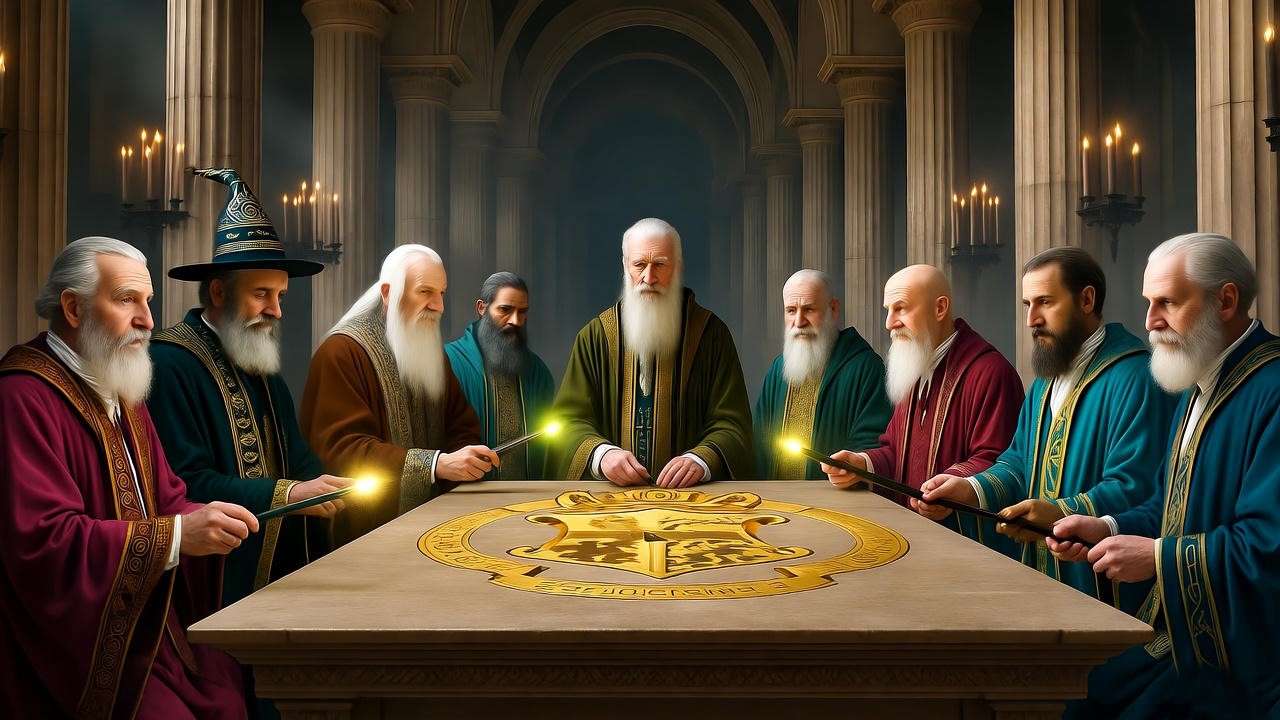
The Structure and Function of the ICW
Organizational Hierarchy
At the helm of the ICW is the Supreme Mugwump, a prestigious title held by influential figures like Albus Dumbledore. This leader presides over a council of representatives from various wizarding nations, each contributing to decisions that shape global magical policy. The structure mirrors real-world international organizations, with delegates advocating for their countries’ interests while striving for collective goals. The Supreme Mugwump’s role is both diplomatic and authoritative, requiring a deep understanding of magical law and international relations.
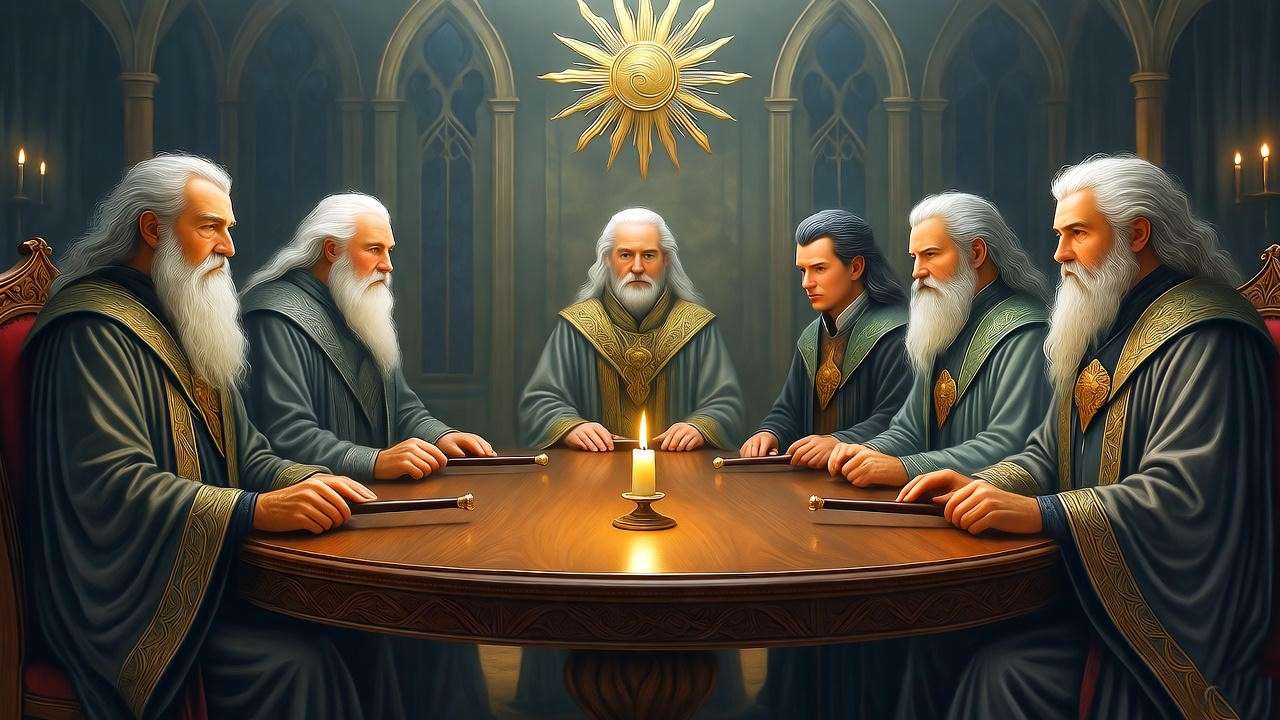
Key Responsibilities
The ICW’s responsibilities are vast, encompassing the enforcement of the International Statute of Secrecy, regulation of magical artifacts like wands, and classification of magical creatures. For instance, in Fantastic Beasts and Where to Find Them, we learn that the ICW oversees the designation of creatures like dragons as “dangerous,” influencing how they’re managed globally. The ICW also mediates disputes between wizarding nations and coordinates responses to global threats, such as dark wizard uprisings. Its involvement in events like the Triwizard Tournament highlights its role in fostering international unity through shared magical traditions.
How the ICW Operates Across Nations
The ICW collaborates with national magical governments, such as Britain’s Ministry of Magic or the Magical Congress of the United States of America (MACUSA). Each nation sends delegates to ICW meetings, where they address issues like trade in magical goods or cross-border magical creature migration. Cultural differences, however, pose challenges. For example, wand regulations in Europe differ from those in Africa, where wandless magic is more common, requiring the ICW to navigate complex diplomatic waters. Below is a comparison of magical governance in select regions:
| Region | Governing Body | Key ICW Contribution |
|---|---|---|
| United Kingdom | Ministry of Magic | Enforces Statute of Secrecy, Quidditch rules |
| United States | MACUSA | Regulates magical creature smuggling |
| Asia (e.g., Japan) | Japanese Ministry | Promotes wandless magic standards |
This collaborative framework ensures that the ICW remains a unifying force despite diverse magical traditions.
Pivotal Moments Involving the ICW in the Harry Potter Series
Albus Dumbledore’s Role as Supreme Mugwump
Albus Dumbledore’s tenure as Supreme Mugwump, detailed in Harry Potter and the Order of the Phoenix, showcases the ICW’s influence. As a respected leader, Dumbledore advocated for progressive policies, including greater protections for Muggle-borns and magical creatures. His dismissal from the role, orchestrated by political rivals during Voldemort’s return, highlights the ICW’s susceptibility to internal power struggles. Dumbledore’s leadership left a lasting legacy, shaping the ICW’s approach to global wizarding challenges.
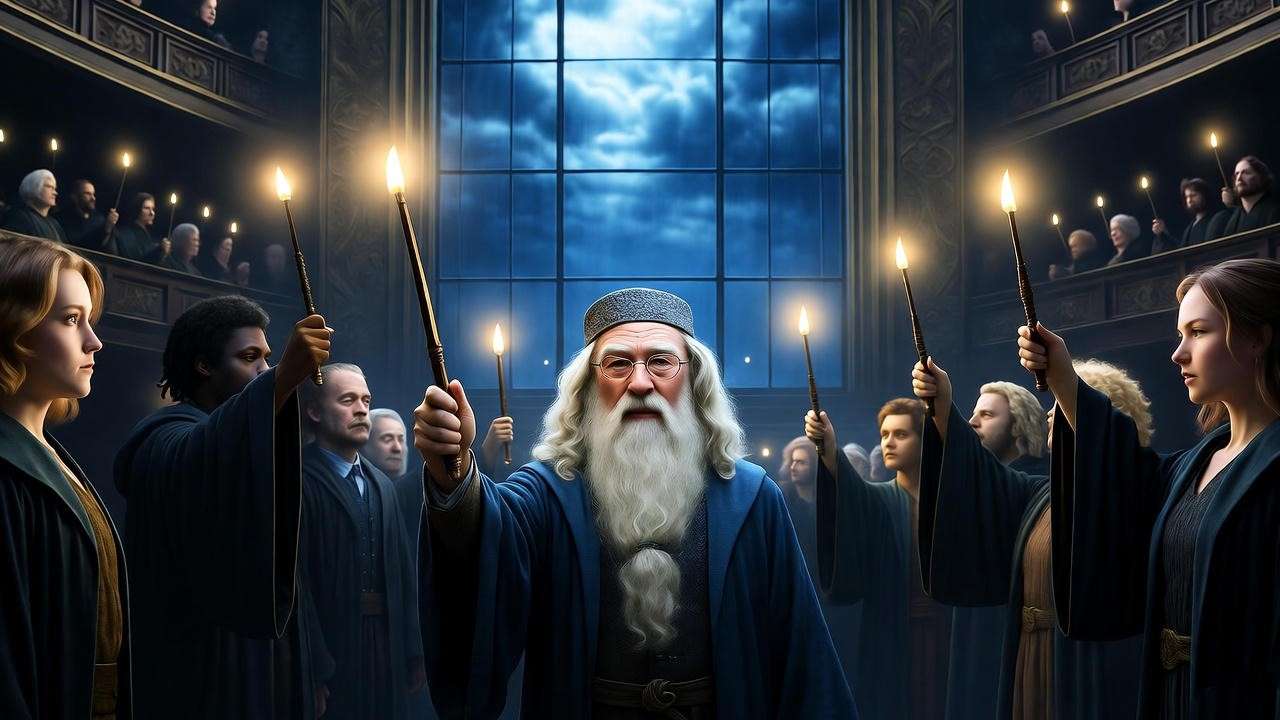
The ICW and the Rise of Dark Wizards
The ICW faced significant tests during the rise of dark wizards like Gellert Grindelwald and Lord Voldemort. In the Fantastic Beasts series, the ICW struggles to counter Grindelwald’s global campaign, which exploited divisions among wizarding nations. Similarly, during Voldemort’s reign, the ICW’s limited intervention—due to its focus on diplomacy over direct action—sparked fan debates about its effectiveness. These moments reveal the ICW’s strengths and limitations in addressing existential threats to the wizarding world.
Notable Meetings and Decisions
The ICW has overseen critical decisions, such as debates over magical creature rights. For example, discussions about house-elf welfare, referenced in Harry Potter and the Goblet of Fire, reflect the ICW’s role in ethical governance. The organization also standardized Quidditch rules, ensuring fair play in global competitions like the Quidditch World Cup. These decisions, often detailed in Pottermore writings, demonstrate the ICW’s far-reaching impact on wizarding culture.
The ICW’s Impact on the Wizarding World Today
Maintaining the Statute of Secrecy
In a world of smartphones and social media, the ICW faces unprecedented challenges in upholding the International Statute of Secrecy. Hypothetical scenarios, like a Muggle capturing a wizard’s spell on video, highlight the need for rapid response teams and memory modification protocols. The ICW likely coordinates with national governments to deploy Obliviators and manage breaches, ensuring magic remains hidden. This ongoing effort underscores the ICW’s relevance in a rapidly changing world.

Addressing Global Magical Issues
The ICW tackles modern issues like climate change, which affects magical ecosystems. For instance, rising temperatures could disrupt habitats for creatures like the Bowtruckle, prompting ICW-led conservation efforts. Fan communities on platforms like Reddit speculate about the ICW’s role in addressing such crises, with some suggesting it collaborates with magical naturalists like Newt Scamander. These discussions add depth to the ICW’s contemporary significance.
The ICW’s Role in Promoting Unity
By hosting events like the Quidditch World Cup and fostering magical education exchanges, the ICW promotes unity among diverse wizarding cultures. Its efforts to standardize magical practices, such as spellcasting protocols, ensure that wizards from different regions can collaborate effectively. This unity is vital in a world where cultural misunderstandings could lead to conflict, as seen in historical tensions between European and non-European magical communities.
Secrets and Lesser-Known Facts About the ICW
Hidden Roles and Influence
The ICW operates covertly in some areas, such as monitoring dark magic networks. According to J.K. Rowling’s writings on Pottermore, the ICW employs specialized agents to track illicit magical activities, a detail rarely explored in the main series. These operations add an air of intrigue, suggesting the ICW’s influence extends beyond public meetings.
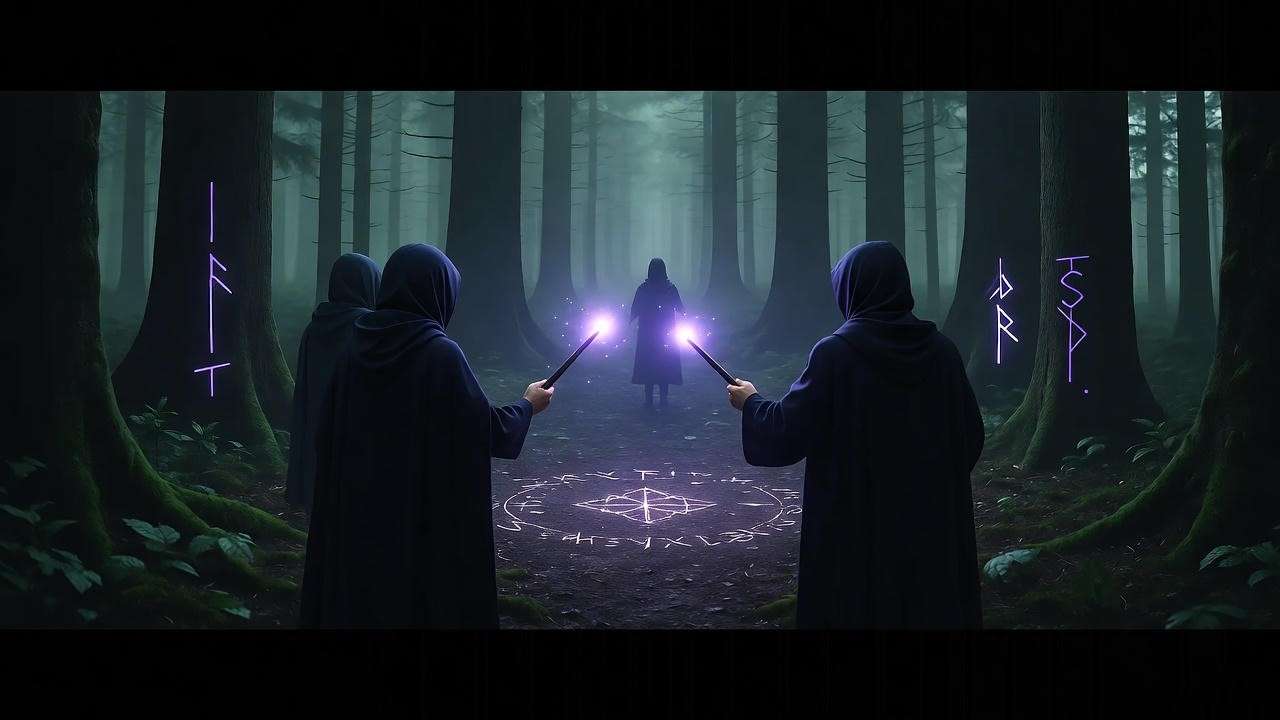
Controversies and Criticisms
Fans often criticize the ICW for its bureaucratic inefficiencies, particularly its slow response to Grindelwald’s rise. Some argue that its focus on powerful nations, like Britain and the U.S., marginalizes smaller wizarding communities. These debates, common in fan forums, highlight the ICW’s challenges in balancing global equity with practical governance.
Fun Facts for Fans
- Did You Know? The ICW’s headquarters is rumored to be a floating fortress, hidden by powerful concealment charms.
- Did You Know? The ICW once debated banning Quidditch due to Muggle sightings of flying broomsticks.
- Did You Know? Wand regulations, standardized by the ICW, vary by region, with some nations favoring coreless wands.
These tidbits, drawn from extended lore, make the ICW a fascinating topic for fans.
Why Understanding the ICW Matters for Harry Potter Fans
Deepening Your Connection to the Wizarding World
Exploring the ICW enriches fans’ appreciation of the Harry Potter universe by revealing the political and cultural forces shaping it. By understanding the ICW’s role, readers can better contextualize events like the Triwizard Tournament or Dumbledore’s global influence. Resources like the Wizarding World website offer further insights, encouraging fans to dive deeper into the lore.
How the ICW Reflects Real-World Themes
The ICW mirrors real-world organizations like the UN, grappling with issues of unity, governance, and cultural diversity. Its challenges—balancing national interests, addressing global threats—resonate with real-world debates, offering fans a lens to explore themes of cooperation and leadership. This connection makes the ICW a compelling topic for discussion in book clubs or online forums.
Practical Takeaways for Fans
- Engage with Fan Communities: Join discussions on Reddit or X to share ICW theories and insights.
- Explore Fan Fiction: Write or read stories imagining the ICW’s role in modern wizarding crises.
- Visit Wizarding World: Access official articles on the ICW to deepen your knowledge.
These activities help fans connect with the ICW’s legacy in meaningful ways.
FAQs About the International Confederation of Wizards
Q1: What is the International Confederation of Wizards, and why is it important?
A: The ICW is the global governing body for wizards, ensuring magical secrecy and cooperation. It’s vital for maintaining order and unity in the wizarding world.
Q2: Who has served as Supreme Mugwump, and what do they do?
A: Notable Supreme Mugwumps, like Albus Dumbledore, lead the ICW, overseeing global magical policies and diplomacy.
Q3: How does the ICW enforce the International Statute of Secrecy?
A: The ICW coordinates with national governments to deploy Obliviators and enforce laws that conceal magic from Muggles.
Q4: Why didn’t the ICW stop Voldemort or Grindelwald more effectively?
A: The ICW’s diplomatic focus and bureaucratic structure limited its ability to act swiftly against dark wizards, prioritizing consensus over direct intervention.
Q5: How can fans learn more about the ICW beyond the books?
A: Explore Wizarding World articles, Pottermore archives, and fan communities for extended lore and discussions.
The International Confederation of Wizards stands as a pillar of the Harry Potter universe, weaving together the threads of magical governance, secrecy, and unity. From its founding in 1692 to its modern-day challenges, the ICW shapes the wizarding world in ways both profound and subtle. For fans, understanding the ICW unlocks a deeper appreciation of J.K. Rowling’s intricate lore, connecting beloved characters and events to a broader global narrative. Share your thoughts on the ICW in the comments below, or join the conversation in Harry Potter fan communities. What issue would you want the ICW to tackle in the wizarding world today? Explore related articles on our blog, like “The History of the Ministry of Magic” or “Magical Creatures in the Harry Potter Universe,” and visit Wizarding World for more magical insights.

